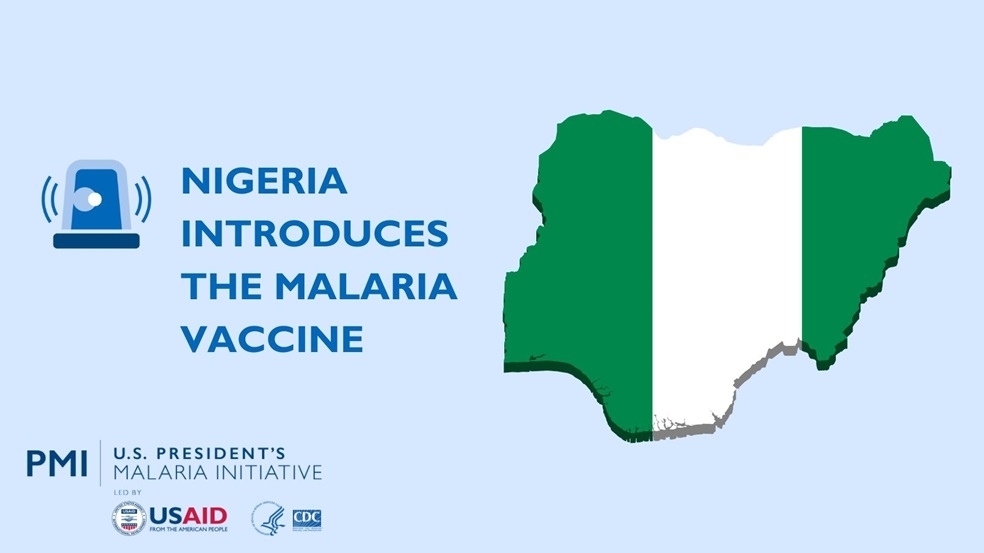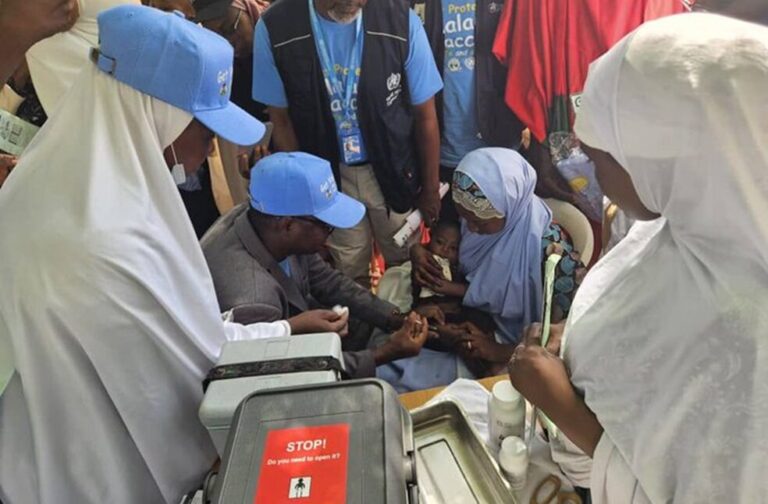Nigeria: Nigeria, the country with the highest malaria-related deaths globally, has begun administering a vaccine against the disease for the first time.
The milestone marks a significant step in combating a disease that accounts for nearly a third of global malaria deaths annually, with children and pregnant women among the most vulnerable.
The vaccine, R21/Matrix-M, developed by the Jenner Institute at Oxford University, is the second malaria vaccine approved by the World Health Organization (WHO).
The vaccine is 75 percent effective and is currently being administered to children aged 5 to 15 months. The initial rollout started in Bayelsa and Kebbi, two of Nigeria’s most malaria-affected states, with plans to expand nationwide by 2025.
Update on The fight for a healthier Nigeria!
💉 Malaria Vaccine Rollout is set to begin in regions with the highest malaria burden! This groundbreaking step brings us closer to protecting millions of lives, especially children.
Nigeria is also taking the lead on the global… pic.twitter.com/pxQStS8i67
— Federal Ministry of Health, NIGERIA (@Fmohnigeria) December 1, 2024
At a launch event in Bayelsa, an 11-month-old boy became the first recipient of the vaccine. Bayelsa’s Health Commissioner, Prof. Seiyefa Brisibe, announced a series of health campaigns to raise awareness about the vaccine in local languages, ensuring accessibility for communities across the state.
Malaria remains a significant burden for Nigeria, accounting for 27 percent of global cases and 31 percent of malaria deaths in 2022, according to WHO data. Across Africa, where 95 percent of malaria deaths occur, Nigeria’s efforts could signal a turning point in reducing the disease’s toll.
Dr. Walter Mulombo, WHO representative in Nigeria, stated that, “We are confident this vaccine, combined with other preventive measures, will drastically reduce malaria cases in Nigeria and bring us closer to a malaria-free Africa.”

The vaccine requires three doses spaced four weeks apart, followed by a booster after one year. Experts recommend its use alongside existing prevention tools, such as mosquito nets and insecticides, for maximum effectiveness.
Nigeria now joins a growing list of African countries using malaria vaccines. Earlier this year, the Ivory Coast and the Democratic Republic of Congo began administering R21/Matrix-M. Meanwhile, Ghana, Kenya, and Malawi have trialled the RTS,S vaccine, another WHO-approved option.



